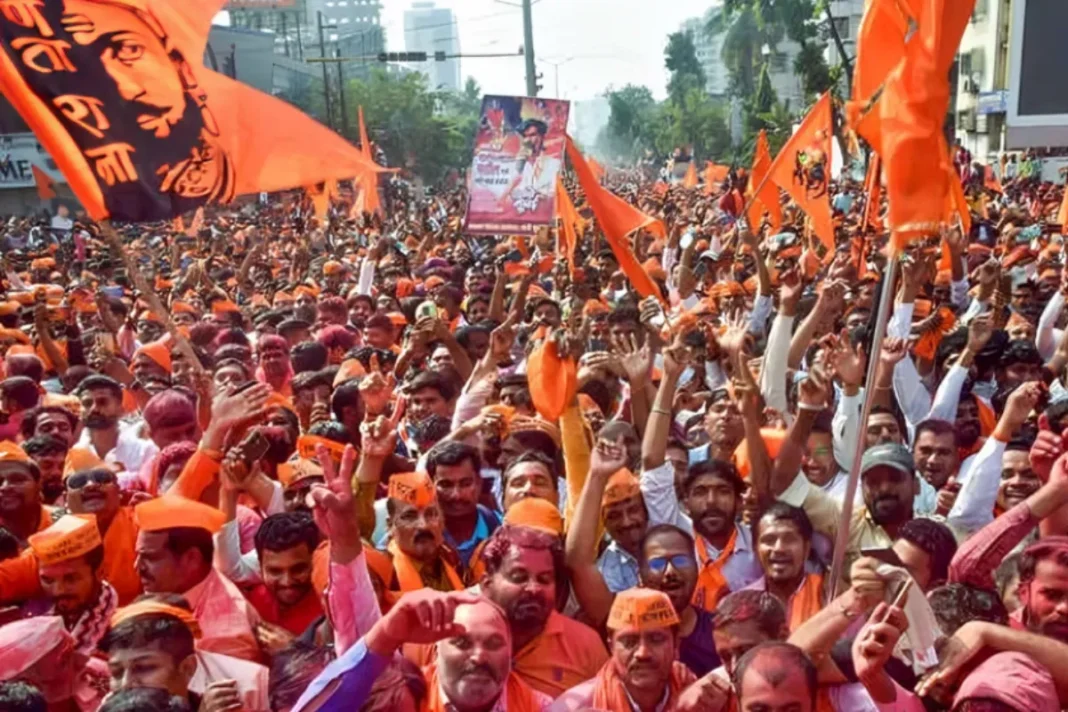The Maharashtra government has decided to increase reservations for the Maratha community in jobs and educational institutions by 10%, specifically targeting the socially and economically weaker sections of the Maratha community.. This brings the total reservation in the state to 62%. Chief Minister Eknath Shinde made this announcement after a special legislative session where a report was presented. The report, chaired by retired Justice Sunil Shukre from the Maharashtra Backward Class Commission (MBCC), was submitted to the state government. The MBCC conducted a survey of 2.5 crore households in 9 days to prepare this report. The Chief Minister mentioned that the reservation for Marathas will be provided in accordance with legal conditions.
Supreme Court’s Stance on Reservation Bill
The Supreme Court has set a rule stating that the maximum limit for reservation in jobs or education in India should not go beyond 50% of the total seats or positions. This rule was established historically and was highlighted in the Indira Sahani judgment by a Constitutional Bench of the Supreme Court, which consisted of 9 judges. The court, in this case, determined the reservation policy and imposed a cap at 50%, calling it the maximum limit.
Until 2014, state governments adhered to this 50% limit when setting reservation policies in their respective states. However, after 2014, some states attempted to surpass this limit. Nevertheless, such attempts faced strong opposition and backlash from the Supreme Court. The court’s ruling in the Indira Sahani case remains a crucial benchmark in determining the maximum permissible limit for reservations in India.
Regarding Maratha Reservation
The government is tasked with providing reservation for Marathas, as outlined in the report. In 2017, the Maharashtra government under Devendra Fadnavis established the MBCC to assess the social, financial, and educational status of the Maratha community. In November 2018, the commission submitted a report designating Marathas as socially and educationally backward class (SEBC). During the same month, the Maharashtra Legislative Assembly passed a bill proposing a 16% reservation for Marathas in education and government jobs.
However, the Bombay High Court affirmed the constitutional validity of the reservation law but adjusted the quota to 12% in educational institutions and 13% in jobs by removing the previous cap.
Who are the Marathas?
The Marathas constitute about 33% of Maharashtra’s population, encompassing landowners, farmers, and warriors. Maratha Kshatriyas often carry surnames such as Deshmukh, Bhonsle, More, Shinde, and Jadhav. Historical conflicts between Maratha Kshatriyas and Kunbis occurred during the Maratha Empire. Currently, many Marathas are involved in agricultural activities.
It’s important to note that while all Marathas are Marathi, not all Marathi people belong to the Maratha community. Maratha represents a collection of castes, whereas Marathi is a language spoken by various communities in Maharashtra and neighboring regions. The Kunbi community, falling under the OBC category, is advocating for Kunbi certificates for all Marathas.
What will change?
The introduction of the 10% Maratha quota bill is expected to bring about several changes in the state’s reservation landscape. Notably, the new quota bill is reported to be similar to the existing Socially and Educationally Backward Class Act, 2018. Additionally, the state already has a 10% reservation for economically weaker sections (EWS), which has been beneficial for politically influential Marathas claiming up to 85% reservation.
This development marks the third time in three decades that the state is proposing a law for the Maratha quota. Each time, the introduction of such a law has coincided with elections and has been accompanied by a survey indicating that the Maratha community is socially and economically backward. Therefore, the enactment of this new quota bill is likely to impact the overall reservation scenario in the state, especially concerning the representation and benefits afforded to the Maratha community.
Why is Manoj Jaranje upset?
Manoj Jaranje is upset because, despite leading the Maratha agitation, he believes that the government has betrayed the Marathas. According to him, the government has not fully addressed the demands put forth by the Marathas. His concern revolves around the possibility that the new reservation for Marathas might exceed the 50% limit set by the Supreme Court. If the reservation surpasses this limit, there is a fear that the Supreme Court could strike it down, making the efforts of the Maratha community for increased representation ineffective and potentially leading to legal complications.


